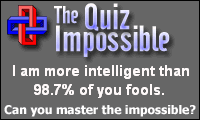(Sources: Principles of Fuel Cells by Xiango Li, Fuel Cell Projects for the Evil Genius by Gavin D.J. Harper)Fuel Cells are environmental friendly devices for energy conversion and zero emission power generation. In fact they have been described as the energy technology of the future. It is a slight misnomer though, due to the fact, that the basic principle of fuel cell was discovered in 1838 by German scientist Christian Friedrich Schonbein and the first fuel cell was demonstrated in 1839 by Welsh scientist Sir William Robert Grove. The development of fuel cell technology slowed down due to the more reliance on heat engines (steam engines, internal combustion engines) and fossil fuels, which were at that time readily available.
The extensive and exclusive use of fossil fuels has left a deep mark on our environment and this will continue to deepen unless and until we do something to stop it. Air pollution due to pollutant emissions like SOx, NOx, CO and particulates is a series threat. Moreover, global warming is threatening our very existence on earth. In addition to all this the fossil fuels we use are not unlimited in supply. They are depleting at an exponential rate and we need to look at better, environment friendly and more economic substitutes.
Fuel Cell technology has been recognised as a promising future technology for this purpose and it meets all our energy requirements.
What are Fuel Cells and how do they work?They are electrochemical devices that directly convert chemical energy from reactions to electrical energy. It produces electricity when fuel (which basically contains Hydrogen) on the anode side and an Oxidant on the cathode side react in the presence of an electrolyte which is sandwiched in between. The residual

products of this reaction are electricity, water and heat.

Fuel Cell is only an energy conversion device i.e. it converts energy from one form to another subject to constraint that the reactants are supplied continuously. The reactants (fuel and oxidant) are stored outside fuel cell and the products of the electrochemical reaction are rejected from the fuel cell.
A fuel cell can produce electricity as long as the reactants are supplied. Because reactants are stored externally, the amount of useful energy derivable from a fuel cell is inexhaustible as long as the reactants are available.
The life of a fuel cell is unlimited in theory as long as the reactants are supplied and products are expelled out. But, this is only good in theory because in practical application due to degradation of parts with time the fuel cell like all appliances has an operational life after which it has to be replaced.
Why Fuel Cell?Now, the question arises why fuel cells, when we can tap into more vast resources like wind, hydro, solar, bio energy etc. Moreover, these various alternate forms of energy are being used worldwide for power generation. They are easy to use and generate electricity for utility application, but are subject to seasonal and irregular fluctuation with respect to the amount of energy available and are limited in the quantity of harvestable energy. Further more, they are more suited for power generation and their use is virtually impossible with respect to direct utilization of power as in transportation application, which is a significant source of environment pollution.
It has been proposed that the most promising option is to use hydrogen as an energy carrier, produced from renewable energy sources, and to adopt fuel cells as a clean and effective means for energy conversion and power generation for mobile applications.
They also poses many advantageous characteristics like high conversion efficiencies, are environment friendly and might help to eliminate our dependence on fossil fuels. Furthermore, they are flexible and can fit into a variety of applications such as on site, distributed and dispersed generation as well as co-generation, without the need of a long distance power transmission network. And, they are compatible with renewable energy sources and carriers for future energy security, economic growth and sustainable development.
Applications of Fuel CellsAs we know fuel cells produce power on demand and can be used to supplement power or in a diverse situation where other methods of power generation are unable o meet the specific requirements.
The majority applications may include:-
* Residences. A fuel cell of size range around 1-5 kW is available for residential houses in cities. It operates on natural gas. The unit will be inside the house and connected to the electric grid. When a household needs extra power for a short time, it can tap into the grid. Moreover, the waste heat can be used for various purposes like room heating, water boiling etc. The house owners could even sell the unused power.
* Commercial power plants made of fuel cells in the size range of 200 kW to 1 MW.
* Transportation. Buses and commercial vehicles running on fuel cells have been demonstrated successfully. Boats and ships can also be run by fuel cells.
* Space Exploration. Fuel Cells have been used in this field since 1964
* Defense. Submarines running on Fuel Cells would be less noisy and easy to hide because of the low thermal signatures.
* Small fuel cells for running cell phones, laptops etc.
SummaryWe see that the fuel cells have a tremendous scope and can be considered as serious contenders in our search for better energy sources to power our daily lives. A lot of research has been done, a lot is being done and lot will be done. R&D is being done to make them even more cost effective and efficient. There are different varieties of fuel cells in existence and each has its pros and cons and is suitable for use in different applications. The fuel cells could be the answer for our search for clean energy.
ConclusionFuel Cell technology was discovered a long while ago but was allowed to stagnate. During those times environmental pollution had not been recognized. Times have drastically changed. Now, environmental pollution is accepted as one of the greatest hazards to human survival. All out efforts must be made to exploit and utilize fuel cell technology for commercial purposes and for every day use.

















